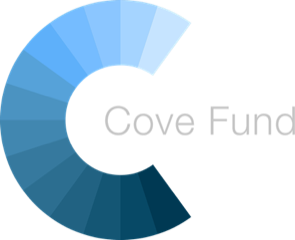What Trends Are We Seeing in the Startups We Screen?
At Cove Fund, we review hundreds of startups every year—some make it into our portfolio, most don’t. But each one offers insight into how the early-stage venture landscape is shifting. We recently asked our limited partners: Are you seeing any interesting trends or patterns in the startups we’re screening? Their answers reflect both enthusiasm and caution, optimism and realism. Here’s a deeper look into what they’re seeing—and what it might mean for founders and investors alike.
1. The AI Overload: Not Every Startup Needs It
One LP noted a concerning trend: “Too many companies jamming AI into companies that don’t need it or don’t know how to use it.”
The pressure to incorporate artificial intelligence is real—and sometimes irrational. Founders are feeling it from investors, media, and competitors alike. But here’s the hard truth: if AI doesn’t make your product significantly better, faster, or more valuable for the end user, you’re better off leaving it out. Bolting AI onto a pitch deck for optics is a losing strategy. We’re looking for thoughtful applications, not AI for AI’s sake.
Startups that will win in this space are those using AI to solve real, painful problems with measurable improvements. That might mean reducing operational costs, enabling new product features, or transforming the customer experience. But it starts with substance—not hype.
2. A Desire to See More Local Startups
“I appreciate the focus on So Cal and would like to see more Orange County and UCI startups,” said one LP.
This feedback resonates with our mission. Cove Fund was built to support the Southern California innovation ecosystem—especially the underrepresented parts of it. While we see strong deal flow from across the region, we echo the call to see more from Orange County, especially UCI-affiliated ventures.
The innovation is here—we know it. What we need are more founders stepping forward, more tech transfer deals taking shape, and more visibility for local startups solving meaningful problems.
3. Later Stage, Higher Valuations, More AI-Centric Companies
“Later stage, higher value, more AI focused type companies” are making up a growing share of our pipeline.
This shift is subtle but telling. While we remain a seed-stage fund, the companies reaching out to us today are often further along than a few years ago—whether that’s more traction, higher revenue, or simply more polish. At the same time, expectations have shifted. Founders are coming in with higher valuations, often pushed up by previous rounds or market exuberance.
It’s not inherently bad—but it does require sharper discipline on our part. We’re looking for deals where the valuation reflects the actual risk, stage, and path to value creation. A $15M pre-money valuation on a company with no revenue and an unproven model isn’t a seed deal—it’s wishful thinking.
4. Valuations Are Creeping Up—Without the Fundamentals
One LP put it bluntly: “Valuations creeping upward without justification.”
This isn’t new, but it’s getting worse. Some of this is fueled by macro optimism, some by AI hype, and some by an oversupply of capital chasing too few true outliers. But at the seed stage, fundamentals still matter. Revenue, customer traction, product-market fit—these are the cornerstones of a compelling valuation, not slide deck flair or large TAM numbers alone.
We’re not allergic to ambition, but we are allergic to fantasy. Founders who back up their valuation with real milestones, defensible IP, and a credible go-to-market plan will stand out.
5. Is the “Golden Era” of Startups Over?
Another LP raised a sobering point: “The startup universe is increasingly crowded. My concern is that the ‘golden era’ for startups is over.”
There’s truth here worth grappling with. Over the past decade, cheap capital and expanding platforms lowered the barrier to entry. That flood of new startups created an explosion of innovation—but also a lot of noise. As capital tightens and markets consolidate, the bar is rising.
What we’re seeing now may be less a collapse and more a maturation. Fewer “tourist” founders. More disciplined growth strategies. A stronger focus on profitability and defensible differentiation. In other words, a return to fundamentals.
This is good news for serious founders and investors. The best companies will still break through—but they’ll do it through grit, execution, and sound strategy, not by riding hype cycles or loose capital.
Takeaways for Founders
Use AI only when it solves a real, defined problem. Don’t force it.
Ground your valuation in reality. Benchmark against traction and risk, not unicorns
Get visible—especially if you’re in OC or tied to UCI. We’re looking for you.
Understand the market shift. Capital is available, but it’s pickier. So should you be.
Final Thoughts
What’s clear is that early-stage venture is entering a new phase. The noise is still loud, but clarity is returning—around value, discipline, and local opportunity. At Cove Fund, we’re committed to finding the signal in the noise and backing the founders who can navigate these new waters with purpose and precision.
If you’re building something meaningful—especially here in Southern California—we want to hear from you.
About Us
Cove Fund is a seed-stage venture capital fund based at UC Irvine’s Beall Applied Innovation, a hub for Southern California entrepreneurs and investors. We invest in early-stage technology and life science companies with differentiated products that address large markets and can achieve major milestones with seed funding.
Since our inception, we have invested over $20 million and are actively deploying capital from our $24 million third fund. If you are a Southern California startup seeking funding — or an investor interested in becoming a limited partner — visit us at www.covefund.com.
